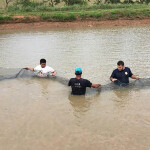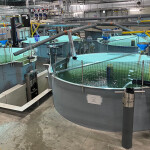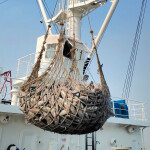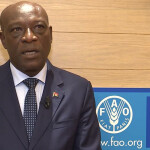SeafoodSource contributing editor Nicki Holmyard recently spoke to seafood industry veteran Roy Palmer, who is also a SeafoodSource blogger, about developments in the global seafood industry over the next few years.
Holmyard: Seafood is the world’s most traded food commodity; it is the last wild food resource and also the most diverse in species, form and provenance. How can seafood professionals be better trained to understand this complexity?
Palmer: Our industry mostly forgets that seafood retailing is their “window.” It is where consumers come into contact with industry and judgments are made about what is experienced. This encounter should be special, but in reality it rarely is.
Too often fish retailing is a nil-entry level job, whereas it should be something people are skilled in and can be proud of. A fisherman or fish farmer can have the best product in the world, but once it leaves their control they are at the mercy of the supply chain, and anyone who can write a HACCP can start a fish retail business.
It would be great to have a global seafood retail training development program and insist that all retailers meet industry standards. I have prepared a paper on Global Retail Seafood Development for FAO-Globefish, and through my visits to Latin America, hope to start a program there in 2014.
I have also set up the Association of International Seafood Professionals (http://seafoodprofessionals.org/) that is free to join, and already has nearly 5,000 members. We aim to create accreditation and services that will “professionalize” the industry and get more people thinking about the global aspects of collaboration and improvement.
The world economy and fish purchasing power is shifting towards developing nations; how will this reshape the global seafood industry?
As the wealth of developing countries improves, consumers will want to increase their protein input, but unlike much of the western world, they already like and understand seafood and are consuming it in good volumes.
The overall effect will be an easing back on own exports and an increase in imports, which will create new global business opportunities, especially in aquaculture products.
It will also create a food security issue for the EU, U.S., Australia and other nations who have grown too reliant on imports. Their governments need to embrace the aquaculture industry, instead of fighting it, because it should NOT be the enemy, but the future, rather than land protein foods like red meat and poultry. The sooner we embrace this, the sooner we can improve our position.
Your work with Global Initiative of Life and Leadership through Seafood (GILLS), advocates greater consumption as an important factor in improving public health, yet many authorities seem reluctant to advocate this strongly. How can the delivery of the health message be improved?
World experts brought together by FAO and WHO in 2010 came up with five recommendations for member states to better assess and manage the risks and benefits of fish consumption, and more effectively communicate with their citizens:
• Acknowledge fish as an important food source of energy, protein and a range of essential nutrients, and fish consumption as part of the cultural traditions of many peoples.
• Emphasize the benefits of fish consumption on reducing mortality from coronary heart disease (and the risks of mortality from coronary heart disease associated with not eating fish) for the general adult population.
• Emphasize the net neurodevelopmental benefits to children born to women who eat fish, particularly pregnant women and nursing mothers, and the neurodevelopmental risks to children of those who don’t.
• Develop, maintain and improve existing databases on specific nutrients and contaminants, particularly methylmercury and dioxins, in fish consumed in their region.
• Develop and evaluate risk management and communication strategies that both minimize risks and maximize benefits from fish consumption.
To date, member states have done little if anything about this. The ball is in their court, but I also believe that industry has a duty to ensure people know that many of the global health issues that have their origins in nutrition, can be helped by eating seafood.
Some nations are finally starting to get the message, especially in Latin America, so hopefully they will be the catalysts for change.
Suppose you have just been made world aquatic resources minister! What is the first new piece of legislation you would introduce?
That’s a hard one and there are so many aspects to look at. However, for a start, I would only have people advising me who know about the issues, yet so many governments fail this test.
Perhaps it would be a law that required industry to organize itself into a professional fishing, aquaculture, recreational fishing, indigenous fishing, boating etc association; one that made people collaborate to resolve issues internally and brought solutions to government rather than problems!






